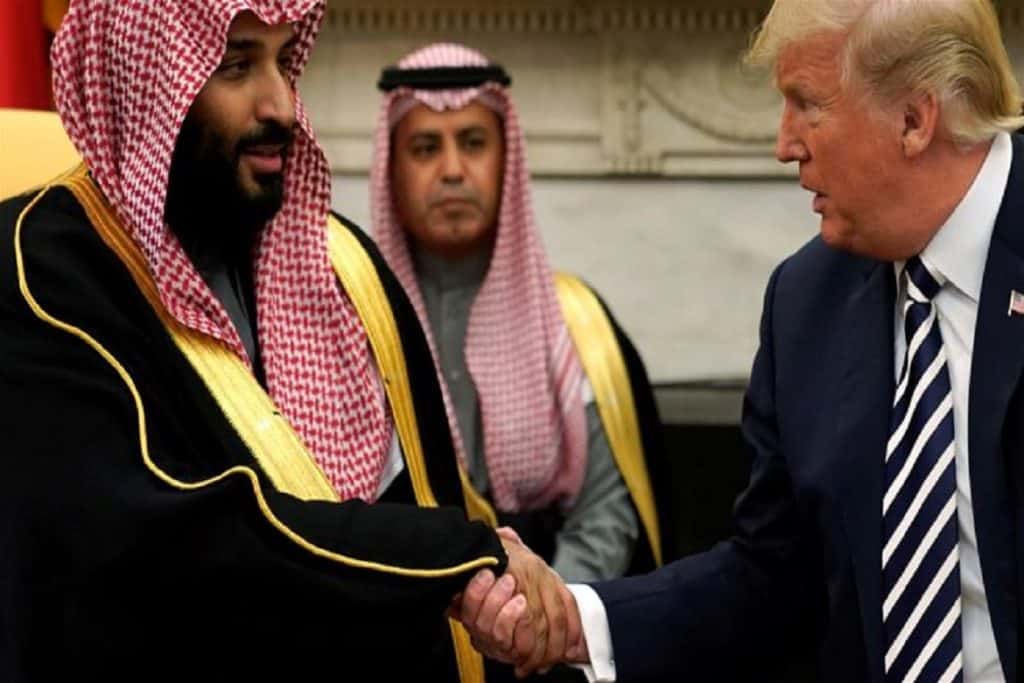By Denis Korkodinov
The administration of the White House in 2017 began a new phase of its Middle East policy. However, instead of strengthening the relations with the international partners represented in the region, Washington is on the brink of a failure.
Donald Trump, becoming president of the United States, started an active rapprochement with Saudi Arabia in May 2017. The international community regarded this act as an opportunity to transform the Middle East and North Africa after a series of high-profile events of the Arab Spring. During the summit of Arab leaders, held in 2017 under the auspices of Riyadh, the participants proposed ambitious plans to fundamentally reform the regional geopolitical map. They talked about neutralizing the threats emanating from Iran, exerting military pressure on Iraq, as well as settling the Arab-Israeli conflict.
Meanwhile in 2019, these plans marked the defeat of the policy of Saudi Arabia, which was going to become the supreme arbiter of all geopolitical processes taking place in the Arab world. The collapse of the former union began with the blockade of Kadar and became virtually irreversible after the intensification of the civil war in Libya and Yemen. At the same time, Riyadh, it would seem, was not at all interested in ensuring a balance of interests and preserving peace, as a result of which all the members of the alliance began to fight each other.
A very telling example of the crisis of Saudi diplomacy was Egypt’s withdrawal from the Middle East strategic partnership. The reason for the release was Cairo’s strongest disagreement with the management style of the Saudis. Riyadh, in its policy, proceeded from its own conviction that all the participants of the “Arab NATO” will unconditionally obey the decisions taken by the Saudis. The President of Egypt did not agree with this position, believing that the organization should strictly follow the principle of absolute equality when none of the states, including KSA, can occupy a dominant position.
In addition, the existing differences between Saudi Arabia and the United Arab Emirates over Yemen do not allow the union of countries under the auspices of Riyadh to be considered as a viable structure. Abu Dhabi is in favour of overthrowing the government of Abdrabbukh Mansur Hadi in Sana’a, while the Saudis are eager to defend him by exposing the armed forces supported by the Emirates to attacks. Such diametrically opposed positions of countries do not allow them to agree and implement a unified policy in the framework of any international entities.
Significantly complicate the negotiation process in the Arab world and differences in the views of the leaders of Dubai and Abu Dhabi. Thus, the Emir of Dubai Mohammed ibn Rashid al Maktoum is sure that his economy has experienced significant negative consequences due to the aggressive policy of the United Arab Emirates.
It is worth noting that the economy of Dubai almost entirely depends on tourism, international trade and foreign investment. Therefore, for the sake of its own economic security, the most preferable option for Dubai would be to maintain friendly relations with all countries of the world, distancing itself from any regional conflicts capable of scaring off international investors. However, the blockade of Qatar, as well as the war in Yemen, created significant economic difficulties for Mohammed ibn Rashid al Maktoum and significantly reduced the flow of tourists. Responsibility for the economic damage Dubai places on Abu Dhabi.
Increased intolerance becomes evident in the relations between Bahrain and Qatar. A clear indication of this is the telephone talks that took place between the Prime Minister of Bahrain, Prince of Khalifa bin Salman al Khalifa and the Emir of Qatar.
Sheikh Tamim bin Hamed Al Tani on the eve of the holy month of Ramadan. When information about the negotiations took place in the international press, Behrain publicly refused to admit that these negotiations reflect the official policy of the country, and, in his opinion, Manama allegedly doesn’t support Doha even in Ramadan. In addition, Bahrain officially declared that it fully supports Saudi Arabia, which is strongly opposed to any direct contacts with Qatar.
Such fundamental differences between countries indicate that the Arab alliance under the auspices of Riyadh has serious flaws. Against the background of attempts to increase Saudi pressure, each of the Alliance members intends to implement exclusively their own policies, which do not coincide with the goals of the Arab Union. And such transformations occurred almost immediately after US President Donald Trump began a rapprochement with Riyadh in 2017.
(The opinions expressed in this article are solely those of the author and do not necessarily reflect the views of World Geostrategic Insights).







